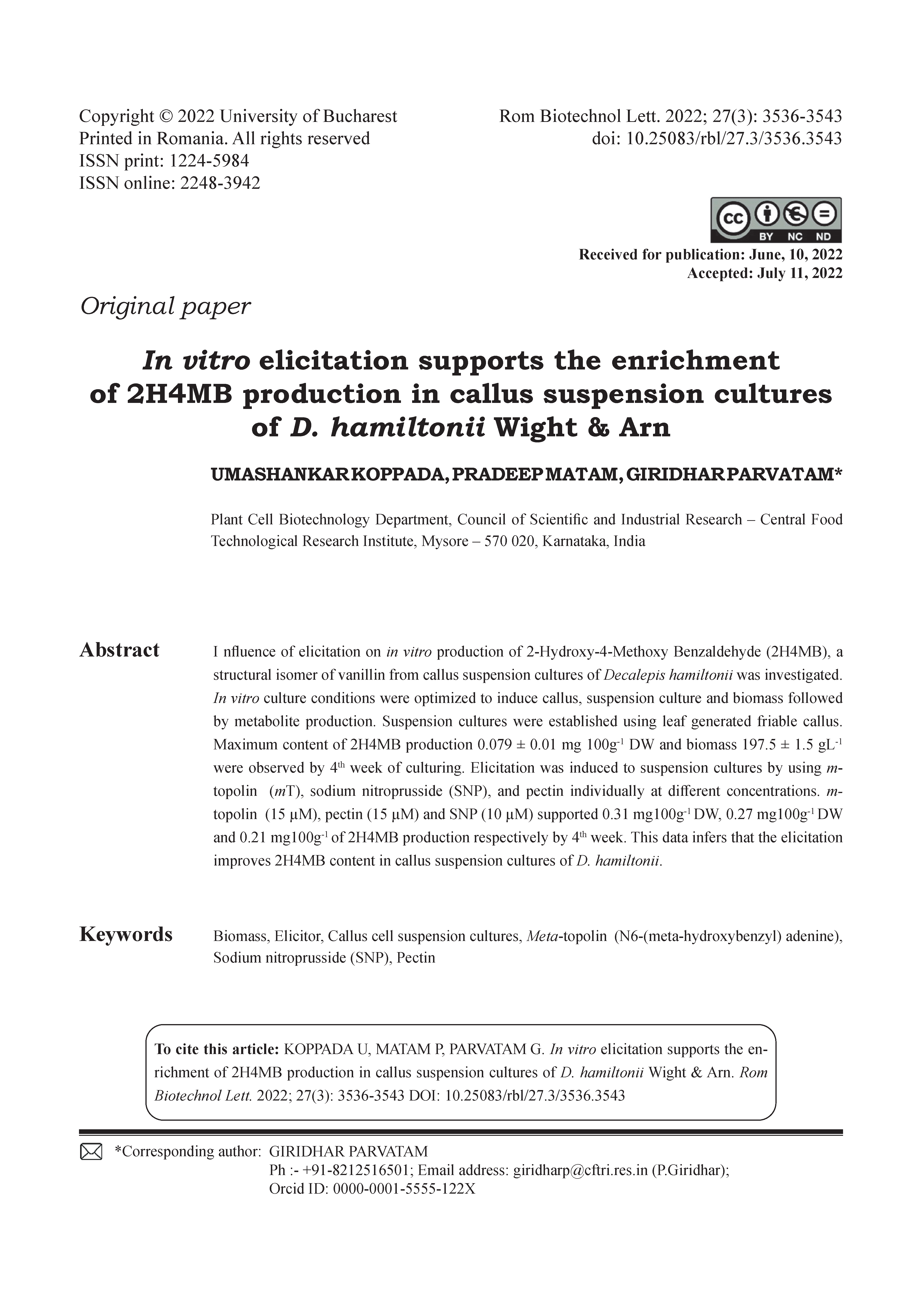In vitro elicitation supports the enrichment of 2H4MB production in callus suspension cultures of D. hamiltonii Wight & Arn
DOI:
https://doi.org/10.25083/rbl/27.3/3536.3543Keywords:
Biomass, Elicitor, Callus cell suspension cultures, Meta-topolin (N6-(meta-hydroxybenzyl) adenine), Sodium nitroprusside (SNP), PectinAbstract
Influence of elicitation on in vitro production of 2-Hydroxy-4-Methoxy Benzaldehyde (2H4MB), a structural isomer of vanillin from callus suspension cultures of Decalepis hamiltonii was investigated. In vitro culture conditions were optimized to induce callus, suspension culture and biomass followed by metabolite production. Suspension cultures were established using leaf generated friable callus. Maximum content of 2H4MB production 0.079 ± 0.01 mg 100g-1 DW and biomass 197.5 ± 1.5 g1_,-1 were observed by 4th week of culturing. Elicitation was induced to suspension cultures by using mtopolin (mT), sodium nitroprusside (SNP), and pectin individually at different concentrations. mtopolin (15 itiM), pectin (15 itiM) and SNP (10 itiM) supported 0.31 mg100g-1DW, 0.27 mg100g-1DW and 0.21 mg100g-lof 2H4MB production respectively by 4th week. This data infers that the elicitation improves 2H4MB content in callus suspension cultures of D. hamiltonii.




